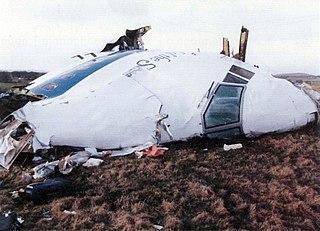April is the fourth month of the year in the Gregorian and Julian calendars. Its length is 30 days.

The first memorials to the victims of the September 11 attacks in 2001 began to take shape online, as hundreds of webmasters posted their own thoughts, links to the Red Cross and other rescue agencies, photos, and eyewitness accounts. Numerous online September 11 memorials began appearing a few hours after the attacks, although many of these memorials were only temporary. Around the world, U.S. embassies and consulates became makeshift memorials as people came out to pay their respects.

Remembrance Day is a memorial day observed in Commonwealth member states since the end of the First World War to honour armed forces members who have died in the line of duty. The day is also marked by war remembrances in several other non-Commonwealth countries. In most countries, Remembrance Day is observed on 11 November to recall the end of First World War hostilities. Hostilities ended "at the 11th hour of the 11th day of the 11th month" of 1918, in accordance with the armistice signed by representatives of Germany and the Entente between 5:12 and 5:20 that morning. The First World War formally ended with the signing of the Treaty of Versailles on 28 June 1919.

A black ribbon is a symbol of remembrance or mourning. It is often worn or put on a public display to express consolation.
A Holocaust memorial day or Holocaust remembrance day is an annual observance to commemorate the victims of the Holocaust, the genocide of six million Jews and of millions of other Holocaust victims by Nazi Germany and its collaborators. Many countries, primarily in Europe, have designated national dates of commemoration. In 2005, the United Nations instituted an international observance, International Holocaust Remembrance Day.
On 27 January 2005, the United Nations General Assembly held a special session in remembrance of the liberation of the Auschwitz concentration camp on the same day of 1945. This is the first time that the international organization made a remembrance of victims of the Holocaust as a way to prevent future genocides. Also, the General Assembly declared January 27 as the International Day in Memory of the Victims of the Holocaust.

Half-mast or half-staff refers to a flag flying below the summit of a ship mast, a pole on land, or a pole on a building. In many countries this is seen as a symbol of respect, mourning, distress, or, in some cases, a salute.
No Greater Love (NGL) is an American humanitarian, non-profit organization founded in 1971 by Carmella Laspada and is dedicated to providing programs such as wreath-layings, remembrance tributes, and memorial dedications, for those who have lost a loved one in the service to the country or by an act of terrorism. To date, NGL has dedicated 11 memorials located in Arlington National Cemetery and sponsors numerous other programs. The name is derived from the verse John 15:13 from the Bible.

The International Holocaust Remembrance Day, or the International Day in Memory of the Victims of the Holocaust, is an international memorial day on 27 January that commemorates the victims of the Holocaust, which resulted in the genocide of one third of the Jewish people, along with countless members of other minorities by Nazi Germany between 1933 and 1945, an attempt to implement its "final solution" to the Jewish question. 27 January was chosen to commemorate the date when the Auschwitz concentration camp was liberated by the Red Army in 1945.

Pan Am Flight 103 (PA103/PAA103) was a regularly scheduled Pan Am transatlantic flight from Frankfurt to Detroit via a stopover in London and another in New York City. The transatlantic leg of the route was operated by Clipper Maid of the Seas, a Boeing 747 registered N739PA. Shortly after 19:00 on 21 December 1988, while the aircraft was in flight over the Scottish town of Lockerbie, it was destroyed by a bomb, killing all 243 passengers and 16 crew in what became known as the Lockerbie bombing. Large sections of the aircraft crashed in a residential street in Lockerbie, killing 11 residents. With a total of 270 fatalities, it is the deadliest terrorist attack in the history of the United Kingdom.
The National Day of Remembrance for Victims of Terrorism is observed in memory of those who lost their lives to acts of terror in Canada and abroad. Taking place every year on June 23, it marks the anniversary of the bombing of Air India Flight 182 off the coast of Ireland.

The World Day of Remembrance for Road Traffic Victims takes place on the third Sunday in November every year as the appropriate acknowledgment of victims of road traffic crashes and their families. It was started by the British road crash victim charity, RoadPeace, in 1993 and was adopted by the United Nations General Assembly in 2005.

The International Day for the Remembrance of the Slave Trade and its Abolition is an international day celebrated August 23 of each year, the day designated by UNESCO to memorialize the transatlantic slave trade.

The September 11 attacks were condemned by world leaders and other political and religious representatives and the international media, as well as numerous memorials and services all over the world. The attacks were widely condemned by the governments of the world, including those traditionally considered hostile to the United States, such as Cuba, Iran, Libya, and North Korea. However, in a few cases celebrations of the attacks were also reported, and some groups and individuals accused the United States in effect of bringing the attacks on itself. These reports have been uncorroborated and many have been linked to unsubstantiated conspiracy theories.

The Black Ribbon Day, officially known in the European Union as the European Day of Remembrance for Victims of Stalinism and Nazism and also referred to as the Europe-wide Day of Remembrance for the victims of all totalitarian and authoritarian regimes, is an international day of remembrance for victims of totalitarianism regimes, specifically Stalinist, communist, Nazi and fascist regimes. Formally recognised by the European Union, the Organization for Security and Co-operation in Europe and some other countries, it is observed on 23 August. It symbolises the rejection of "extremism, intolerance and oppression" according to the European Union. The purpose of the Day of Remembrance is to preserve the memory of the victims of mass deportations and exterminations, while promoting democratic values to reinforce peace and stability in Europe. It is one of the two official remembrance days or observances of the European Union, alongside Europe Day. Under the name Black Ribbon Day it is an official remembrance day of Canada. The European Union has used both names alongside each other.
The 2012 Olympics one minute of silence campaign refers to an international campaign created to persuade the International Olympic Committee (IOC) to hold one minute of silence at the opening ceremony of the 2012 London Olympics to remember the Israeli athletes killed in the Munich massacre at the 1972 Olympics by the Palestinian terrorist organisation Black September. Support for the campaign came from a number of high-ranking officials and governments, including the United States Congress, U.S. President Barack Obama, U.S. Secretary of State Hillary Clinton, U.S. Republican Party presidential candidate Mitt Romney, the Italian Parliament, the Australian Parliament, the Canadian Parliament, the German Parliament, and German Foreign Minister Guido Westerwelle.

The Day of Remembrance for All Victims of Chemical Warfare is an annual event held November 30 as a "tribute to the victims of chemical warfare, as well as to reaffirm the commitment of the Organisation for the Prohibition of Chemical Weapons (OPCW) to the elimination of the threat of chemical weapons, thereby promoting the goals of peace, security, and multilateralism." It is officially recognised by the United Nations (UN) and has been celebrated since 2005. On the 2013 observance day, the UN Secretary-General Ban Ki-moon gave a speech where he stated:
On this Remembrance Day, I urge the international community to intensify efforts to rid the world of chemical weapons, along with all other weapons of mass destruction. Let us work together to bring all States under the Convention and promote its full implementation. This is how we can best honour past victims and liberate future generations from the threat of chemical weapons.

On the evening of 14 July 2016, a 19-tonne cargo truck was deliberately driven into crowds of people celebrating Bastille Day on the Promenade des Anglais in Nice, France, resulting in the deaths of 86 people and the injury of 434 others. The driver was Mohamed Lahouaiej-Bouhlel, a Tunisian living in France. The attack ended following an exchange of gunfire, during which he was shot and killed by police.

Imrana Alhaji Buba is a Nigerian social entrepreneur and activist who founded Youth Coalition Against Terrorism (YOCAT) which is now regarded as Youth Initiative Against Terrorism (YIAT), a volunteer-based organisation in northern Nigeria working to unite youth against violent extremism through peace education programs in schools and villages.

The Roma Holocaust Memorial Day is a memorial day that commemorates the victims of the Romani genocide (Porajmos), which resulted in the murder of an estimated 220,000–500,000 Romani people by Nazi Germany and its collaborators during World War II. The date of 2 August was chosen for the memorial because on the night of 2–3 August 1944, 2,897 Roma, mostly women, children and elderly people, were killed in the Gypsy family camp (Zigeunerfamilienlager) at Auschwitz concentration camp. Some countries have chosen to commemorate the genocide on different dates.












